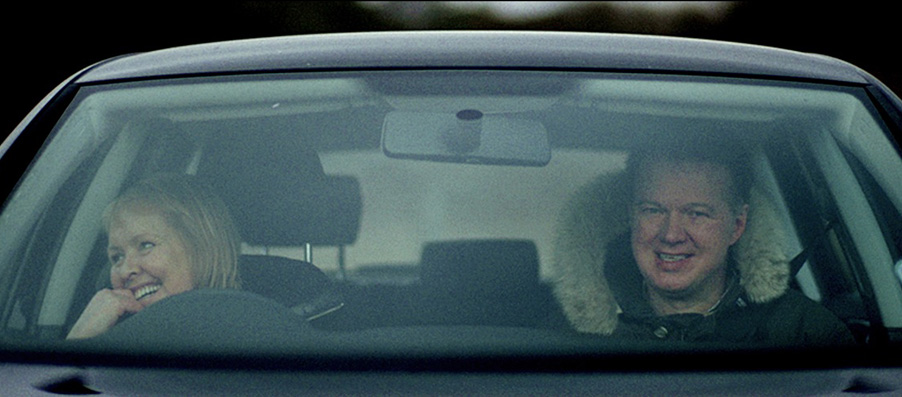For anyone who spent any time near a radio during the summer of 1995, the seconds-long glimpse of Edwyn Collins wrapping up a performance of “A Girl Like You” on “Late Night with Conan O’Brien” at the start of “The Possibilities Are Endless” will bring back a flood of memories. As the final notes of that tangy killer hook are played, your mind can fill in the rest of it – the lyrics, where you were when you first heard it, the sweltering heat that accompanied it when it was one of the biggest hits of that season. It was the height of Collins’ career and yet moments later in the film, you learn he remembers none of it.
In fact, “The Possibilities Are Endless” takes its title from just one of two phrases Collins could verbalize following a debilitating stroke in 2005, an inestimable tragedy for a wordsmith who built up a genuinely adventurous body of work before and shortly after the song most people know him for. It’s only fitting then that Edward Lovelace and James Hall have crafted something unique in recounting Collins’ recovery, pairing the singer/songwriter’s thoughts and feelings in his still-slurred speech, along with those of his attendant wife Grace Maxwell (whose name was the only other words he could speak), with imagery from the present day of the places that were important to him in his youth.

While Collins begins to regain his voice, the narrative is helped along with recreations of Collins’ coming-of-age, with Collins’ son William standing in for the burgeoning troubadour in his twenties and “Submarine” star Yasmin Paige playing a young Grace as the two find their way to London. In the wrong hands, it’s an idea that could’ve easily backfired. Instead, in a remarkable feat of careful editing and elegantly drawn soundscape, Lovelace and Hall build a great romance not with dialogue, but a gentle yet insistent score from Collins and narration from the real Maxwell, the harmony of which is deliciously sweet without being saccharine.
Although “The Possibilities Are Endless” veers towards a more traditional arc as the film draws closer to the present day where Collins is attempting a come back to the stage, it is nonetheless a transcendent experience, perhaps made even more so by the couple’s insistence that it’s not (as Maxwell says of Collins’ limited albeit yet beautiful vocabulary, “It may seem deep, but when you’ve heard it 85 times a day, it’s less so”), with both too close to the situation and inured by the day-to-day drudgery of his recovery to admit something profound is going on. Lovelace and Hall, however, bring out the magic in the most mundane of moments, attuned to how important all the little moments that Collins struggles to take back in his mind’s possession are what life is all about. “The Possibilities Are Endless” may have unconsciously become a rallying cry for Collins to overcome impossible odds, but it was also prophetic for such a daring and original work about him.
“The Possibilities Are Endless” does not yet have U.S. distribution. It will play in Los Angeles at Cinefamily as part of the “Don’t Knock the Rock” series on July 31st and at the Melbourne Film Festival on August 2nd and 16th. A full list of screenings can be found here.




